FICTION is a literary magazine founded in 1972 by Mark Jay Mirsky, Donald Barthelme, Jane Delynn, and Max Frisch.
In its early years, Fiction was published in tabloid format and featured experimental work by such writers as John Barth, Jerome Charyn, Italo Calvino, Alice Hoffman, Ronald Sukenick, Steve Katz, Russell Banks, Samuel Beckett, and J.G. Ballard. It later took the form of a more traditional paperback literary magazine, publishing short works by Chimamanda Ngozi Adichie, Reinaldo Arenas, Isaac Babel, Mei Chin, Julio Cortazar, Marguerite Duras, Natalia Ginzburg, Clarice Ginzburg, Jamaica Kincaid, Clarice Lispector, Robie Macauley, Robert Musil, Joyce Carol Oates, Manuel Puig, John Yau, and many other established and emerging writers.
Fiction Online
Excerpts and full stories from the print magazine
by Gregory Spatz
HE WOULD NOT BE the first traveler to imagine his path through the mountains, rising and falling with the course of the river below, as a tunnel cut through space and time with everything along its course fated for him to encounter: the pattern of light and shadow on his windshield and on the road ahead, the exact smattering of rain at kilometer marker 146, wind gusting at the sides of his car, the sudden splat of a dead bug leaving Cranbrook…
by Salar Abdoh
AT THE END OF A STORY he wrote about the greatest medieval commentator of Aristotle, Borges noted: The instant I stop believing in him, Averroes disappears.
by Marc Palmieri
I’D KNOWN FOR weeks that my father had gotten transferred to Long Island. We’d be moving in the winter after Christmas, and I’d be leaving my sixth grade class right in the middle of the year, but I kept it top secret at school, even from my friends. I hadn’t even broken the news to my teacher, Ms. Waters. Whenever it felt like the right time came each day, I put it off and tried to not think about it.
by Katie Edkins Milligan
IN THAT VERGING summer between high school and college, I worked at a BYOB lobster restaurant on an inland creek in Kittery, half an hour down from Kennebunk by the Post Road, where the water was brown and shallow enough to get hot. I lived in the next county over, which is enemy territory in a football town like this, so I shouldn’t have gotten the job.
by Heather E. Goodman
LAUREL RACED FROM the woods, thinking Boone might have doubled back to the house after he bolted. It was hot, too muggy for early June, and she was out of breath after hustling up from the creek that bordered their seven acres. She yelled for Sam, who still called for Boone in the woods behind her. A truck in the driveway: engine wheezing quiet. She saw the shotgun. Stopped. Her voice in her throat, she listened. She could hear Sam’s feet in the leaves, maybe 150 yards off.
by Kalisha Buckhanon
ONE HUNDRED AND Forty-Seventh Street was packed with many buildings like the five-story walk-up I looked for. Their units waited on new parquet floors, faux marble kitchen backsplashes, and doubled rents once the long-term tenants were evicted or dead.
by Joseph McElroy
WE LEARNED OVERNIGHT and from an impeachable source that we were a person. We were entitled to the privacy any other person could claim though you must claim it. It was news – ins and outs basically one could say confirmed by two former appellate judges consultant to the Firm not just on the law but on matters as various as blood and ingredient labeling and what is called hunting…
by Lawrence Osborne
CASSIDY SARAH O'BRIAN was past thirty-eight and already divorced when she decided to write her thesis on the language of the Outer Citak. They were a remote people of the Maukele forests closely related to the Inner Citak and, more remotely, with the Korowai. She had studied them for some years, aware that they represented to the linguist a niche of underrepresented possibilities. They were Neolithic horticulturalists and no one knew whether they had a past imperfect tense in their language. They might be useful when it came time to post her mark on posterity.
by Luis Amate Perez
SHE COULD HAVE been a boy. Her chest looked stripped of the fat and muscle that make breasts possible. Although this was the first time I'd seen her topless, I felt as though I'd seen her bones somewhere before, in the mirror over my bathroom sink after a bath—the chest of a bony nine year old boy—a reflection.
by Julio Cortázar
IN THE AUTUMN of 1978, the basic idea of the expedition had been established, with the following rules of the game:
1. Complete the journey from Paris to Marseilles without once leaving the autoroute.
2. Explore each one of the rest areas, at the rate of two per day, spending the night in the second one without exception.
by Patricia Schultheis
WE CLEANED FOR our mothers. Off boats and kerchiefed, they stood at conveyor belts, boxing brassieres or culling cartridges, their hands growing cramped, their ankles swollen, until, shift over, they scarcely could climb onto buses and ride to third-floor flats whose mean little rooms we, their daughters, had cleaned.
By Silvina Ocampo
HER NAME WAS Coral Fernández; she always wore her hair over her left ear, leaving the right one uncovered. She was so pretty that at first I thought she was foolish.
We met at a country luncheon to celebrate the opening of the Cyclist's Club in Moreno. The tables were set beneath a grove of blossoming paradise trees; there was a bandstand and a floor for dancing.
By Robert Musil
Unknown little girl!
Because I do not know you, I am writing to you through the newspaper. Indeed, as I consider the circumstances of our meeting, it becomes clear to me that I am writing to someone who no longer even exists or who does so only in the most shadowy sense.
Editors' Corner
Recent blog posts by Fiction editors
by David Saccone-Braslow
Patricio Pron was born in Rosario, Argentina in 1975. His father was a political journalist and his mother worked as an archivist. As a child he spent summers with his paternal grandparents who immigrated to Argentina from Turin, Italy. His maternal family was originally from Bern, Switzerland. By seventeen, Pron was writing for La Capital, Argentina’s oldest Spanish-Language newspaper.
by Leah Kogen-Elimeliah
For Sara Ludy, an American artist from Bluemont, a town in rural Virginia near the Appalachian Trail, the unknown, the unseen, and the ghostlike is what drives her creativity to those shadowy and unfamiliar territories. This is where questions and what she refers to as paranormal experiences, help gauge her sense of belonging while getting inside the virtual and the metaphysical worlds, touching on what Sara regards as “energy” that produces and shapes her works of art.
by Sonja Killebrew and Afsana Ahmed
Marc Palmieri is a professor, a writer, an actor, and even a baseball coach having once played for the Toronto Blue Jays. His plays, such as Waiting for the Host, Poor Fellas, and NY Times’ “Critic’s Pick” Levittown have been performed not only in New York City but around the country. His script for Telling You was produced by Miramax and stars Jennifer Love Hewitt.
by David Saccone-Braslow
Salar Abdoh is a novelist, essayist, and translator born in Tehran, Iran. He attended a boarding school in England before relocating to Los Angeles when his father left Iran for the United States following the 1979 Iranian Revolution. Abdoh received his undergraduate degree from U.C. Berkeley and his Master's from the City College of New York, where now teaches creative writing.
by Mark Jay Mirsky
The Diaries of Franz Kafka is a new translation of Franz Kafka’s Journals by Ross Benjamin and his extensive notes open up a new chapter for readers in English who want to understand the inner life of Franz Kafka, a writer whose work has influenced many of the major writers of 20th and 21st century fiction as well as serious thinkers in fields as diverse as philosophy, history, and sociology.
by Thomas Gladysz
The fictional character at the heart of Jerome Charyn’s “Lulu in Love,” an excerpt from a forthcoming novel, was inspired by a real person, Louise Brooks. Today, this 1920s film star is best known for two things. The first is her iconic look. What defined her image was her sleek bobbed hair—a “black helmet” as critic Kenneth Tynan once put it. Brooks’ legend also rests on her role as Lulu in G.W. Pabst’s 1929 film, Pandora’s Box. Like her oft-copied haircut, Brooks’ memorable portrayal of Lulu has inspired more than fashion, including a handful of other films and film characters.
by Mark Jay Mirsky
As a novelist, I read one way, and as I suspect as a teacher, I read another. There is a third way I occasionally read—as an editor. (I once was privileged to read as a critic, but since a change of editors at The Washington Post’s Book World and the extinction of Partisan Review, and various other publications whose editors knew me, I have lost a ready access to a soapbox.) Every now and then, however, some stunning stupidity, in The New York Times, The New York Review of Books, or The New Yorker takes my breath away.
Gila Green [Tal] was a student of mine some years ago in the graduate creative writing program at Bar Ilan University. Since then I have followed her fiction with pleasure and printed it in Fiction, [See—Gila Tal, Brass Knuckles, Fiction Magazine, Volume 20, #2]. Some years ago she left her home in Canada to eventually settle in Beit Shemesh and her work often echoes of the disparate worlds of those who come to live in Israel from other places.
by Mark Jay Mirsky
The editors at Fiction thought it might be worthwhile for me to comment on stories that we published in the current issue so as to give readers of our Web page an incentive to find the magazine in bookstores or to subscribe. At the same moment a note came in from a writer whom I prize and whose work I teach, Cynthia Ozick, and she has given me permission to print it here. Since she has mentioned my story, “On Account of an Apple,” her comment will suffice.
Reviews & Testimonials
by Joseph McElroy
Mirsky of Boston has an ear for longing, anger, contradiction, family, a smelting pot of confounded and ironic heritage; an eye for wild progress, flood, violence, the hands-on politics of Irish police force and Black power, and here, so convincing and droll and painful, the fugitive, all but isolated will of outlying Native America.
by Katherine Q. Stone
According to James Wood, The New Yorker literary critic introducing Karl Ove Knausgaard this afternoon, the first time the Norwegian novelist came to New York there were about twenty people at his reading. The room was filled with empty seats.
On Saturday, January 31st, Fiction and the Fiction Club of CCNY held a reading at Bunga's Den in Manhattan. Featuring American author Joseph McElroy along with CCNY readers Lissa Weinstein, James White, and Coryn Brown, the reading was lots of fun and enabled the Fiction community to hear from four different and inspiring voices.
Writing is thinking and, we hope, at its most precise. When we crack open the Difficult, there’s a surge of feeling and emotion, understanding, that “I get it!” moment. If we’re wanting to avoid the Difficult (notice I’ve started capitalizing it, what is that about?) novel or short story, then what are we feeling? And, what are we thinking?
by Mark Jay Mirsky
In the past few months, I have found myself embroiled in the argument that the novel as an important creative form has died and that its death knell has tolled.
This will be tiring for you, I know, and sometimes perhaps a little funny, because of my English pronunciation. So we can recuperate now and then, I will use quite a lot of quotes and the quotes you will hear in perfect English.
by Mark Jay Mirsky
In a complex (though damning) review of Peter Handke's "Crossing the Sierra Los Gredos," in the August 19, 2007 issue of the New York Times Sunday Book Review, one line caught my eye, and raised a vigorous "No, unfair!"
by Mark Jay Mirsky
When I am asked by writers what I look for in submissions to Fiction, I generally look blank. This is because I try to read the stories that come across my desk without preconceptions. I don't have a formula in my head. I know one editor of a prominent literary journal who announced that he could always tell from the first sentence whether a story was worth reading or not. I can't echo that. I do, however, usually know by the bottom of the first page whether or not I want to go on reading.
by Mark Jay Mirsky
In writing and thinking about the great figures in the world of fiction who have influenced me most, I am always drawn back to realize how engaged they are in the world of history, my second great love after literature. Donald Barthelme, without whose help and encouragement the magazine, Fiction, would never have begun, was passionate about politics and social issues, which permeate his fiction. Robert Musil's grasp of the balancing act of the Austrian Empire before the First World War is the background for his masterpiece, The Man Without Qualities.
by Mark Jay Mirsky
Last summer, one of the staunchest admirers of Fiction, Dorothea Straus, passed away. Several years before that, sensing how fragile she was in the wake of her distinguished husband, the publisher Roger Straus's death, I went out to their historic mansion in Westchester to film her reading one of her stories. Roger had rebuilt the house after a fire. The grounds, which spread with the largesse of a great baronial estate, were the home of a family whose public contributions to the United States was writ large.
Hot Type
Free short stories available only online
by Jennifer Sabin
I WORKED IN newsrooms for twenty years. … Everyone I worked with was fairly desensitized to the day in and day out of human misery, until 9/11, when the news became personal for every American journalist, particularly those working in New York. I wasn’t in the newsroom that day – I was awaiting the arrival of my second child who was due September 11th. For the first time in years, I experienced a huge story – the biggest story of my life – from the disquieting distance of my home, and later a maternity ward.
by Mara Grayson
I PROBABLY SHOULDN'T have touched the oil paint. I know I wasn't supposed to. Please understand that my transgression was not an attempt at defiance or destruction. I never wanted to harm the painting, but at thirteen years old, my understanding of some things was not as clear as it is now. I wanted to touch Frida's hands, but because her hands weren't in the painting, I touched Diego's nose instead.
by Mark Jay Mirsky
THERE IS NO independent force of evil in the Hebrew Bible or the Thousand Nights and One scholars have pointed out. A djinn or genie taking on the identity of a court appointed tempter, the Satan of The Book of Job, may be an emissary of ill report, the spy of the Oriental court, a Shaytan, sworn to the harm of man. Or he or she can simply be a creature of another realm. There are no witch-hunts, no searches for warlocks in the Arab or the Jewish world. Even the intercourse of men and women with djinns has its laws.
by Veronica Gorodetskaya
GRAF AND MY father met on the streets. They were both hustling jobs as hands on moving and delivery trucks. A fellow native of St. Petersburg, Graf became my father's best friend in New York. It was hard to distinguish the two. They both wore neatly tailored acid-dyed jeans with cargo pockets and zippers on each leg, and striped, pale colored button-down shirts or T-shirts that they had bought in bulk in Chinatown that said, "Zip Your Fly," "Leave Me Alone," and "I Heart New York." All this above a pair of bright white sneakers and brown dress socks that inevitably showed when they sat down.
by Lily Morningstar
THE THICK CANOPY of mango trees overhead blocked out the light of the waning Gibbous moon and I could hear the dry leaves crunch beneath my sandaled feet as we made our way down the crumbling gravel path toward the sound of waves crashing onto hard packed sand. I hurried, imagining giant centipedes coiled, sleeping beneath the leaves, plump with venom, the thought of their hard exoskeletons and many legs made me sick with fear and I wished I'd worn sneakers.
by Kesi Bem Foster
HE COULD FEEL his brother watching him from the doorway as he played video games. He heard his brother's cast thump the linoleum floor as he made his way over to their room. Hunched over, sitting on the edge of the bed, he stared at the television screen. Out of the corner of his eye, he noticed that the window to the fire escape was open, enough for him to slip through. Even with his brother hobbled by a broken foot, Lil D knew he would have to be quick. He wasn't going to fight. It would only fuel the rage behind the blows.
by Jeanne Troy
AT THE END of November, a harsh storm swept across the northwest. Alyssa’s flight was canceled because of high winds and heavy sideways snow at the Seattle-Tacoma Airport. The weather was milder in New York. Hudson made pasta while Alyssa stood out on the balcony of his apartment, drinking warm cider. Each time she exhaled her breath became visible, mingling with the steam from the cup. Hudson was dividing the pasta into two bowls when she went back in.
by Karen Baddeley
MY UNEMPLOYMENT WAS due to run out in a month so the civil service people had me up against a wall. I showed up to the interview 20 minutes early. The girl who interviewed me looked 20 years old and wore flip flops with her business suit. She read me questions off a sheet of paper.
by Jennifer Anne Moses
LORETTA IS TALKING, talking, talking—the fact of the matter is, her mind is slipping some, and if she doesn’t talk, well, then, she may well just forget what it was she was meaning to say. This time she’s with that white girl. The white girl who takes her places. The volunteer. “What did you say your name is again?” she asks the white girl, who tells her. Oh yeah. They’re driving. The white girl isn’t such a great driver though: she drives like an old lady, slow, and Loretta wants to go fast! She wants to go so fast that her hair will fly right off her head!
by David Plick
THE DOORWAY TO B-pod was painted orange like the metal tables and chairs. Underneath in parts there was grey showing where the paint was peeling off and everyone around, the inmates and guards alike, stared at him not making a sound. They couldn’t believe it but neither could Gabe, this day was never going to come. As he passed under the opening through to the other side where the air felt colder, he pinched his eyes shut and searched for Leah’s expression, how she would look watching him leave, walking out of B-pod with his eyes closed, an orange jumper and orange floppy shoes, an unending smile, but he couldn’t piece her all together. Somewhere in there he had lost her.

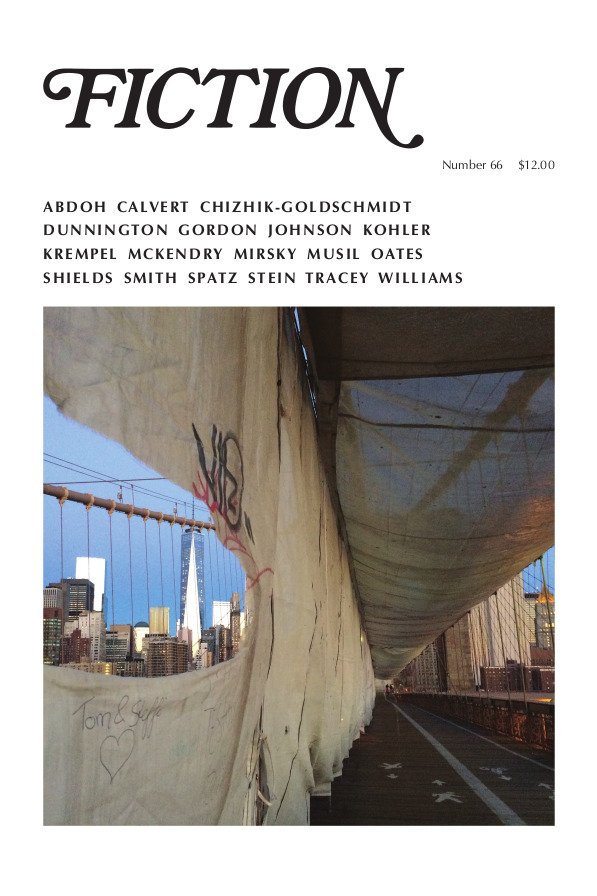
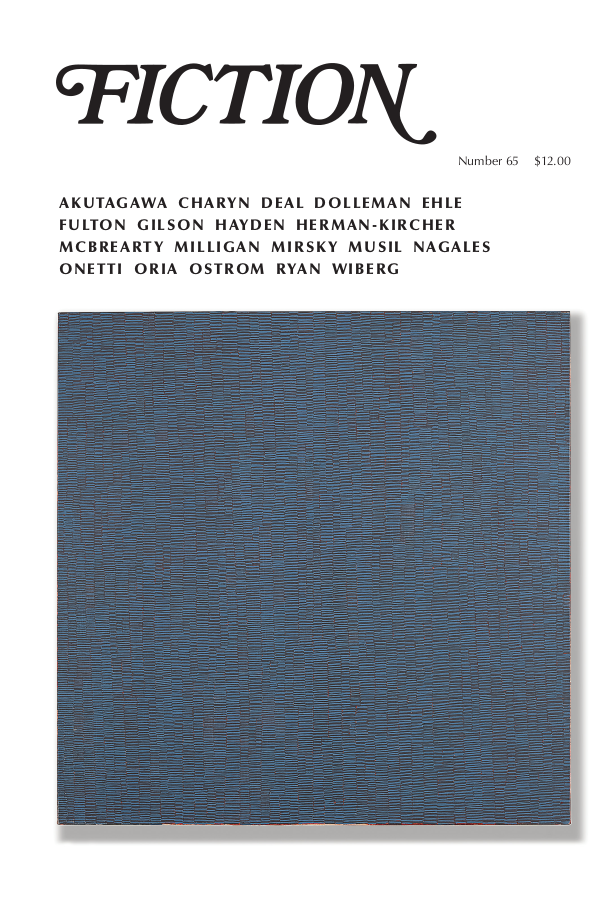
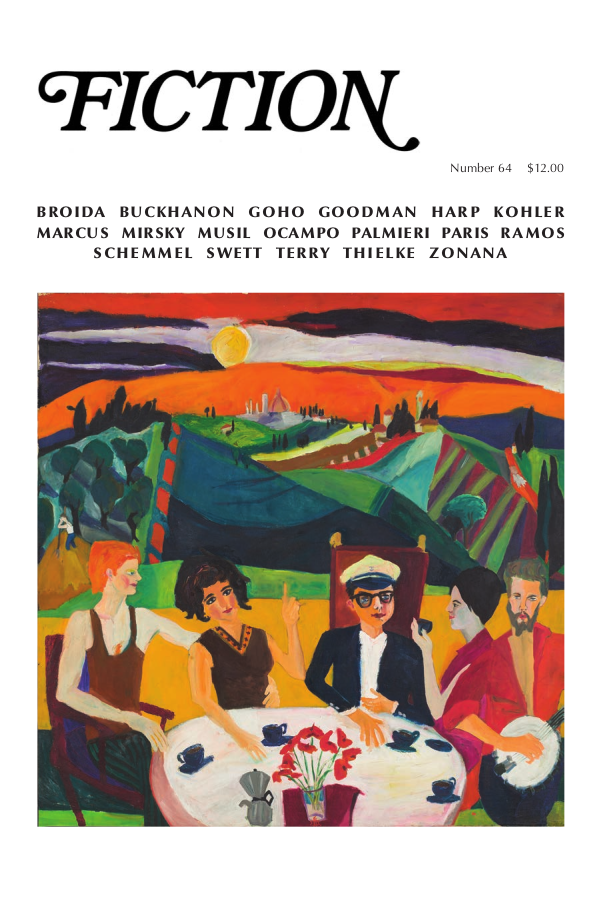






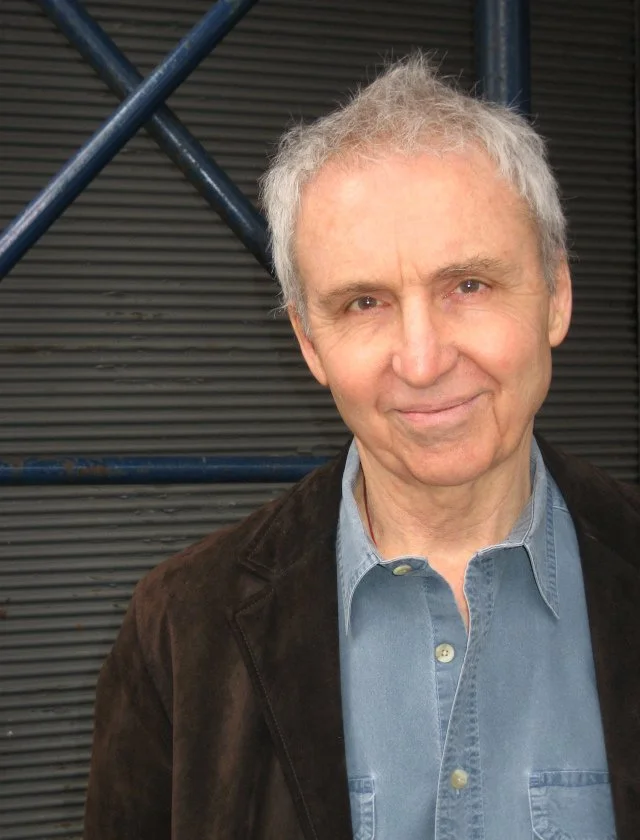


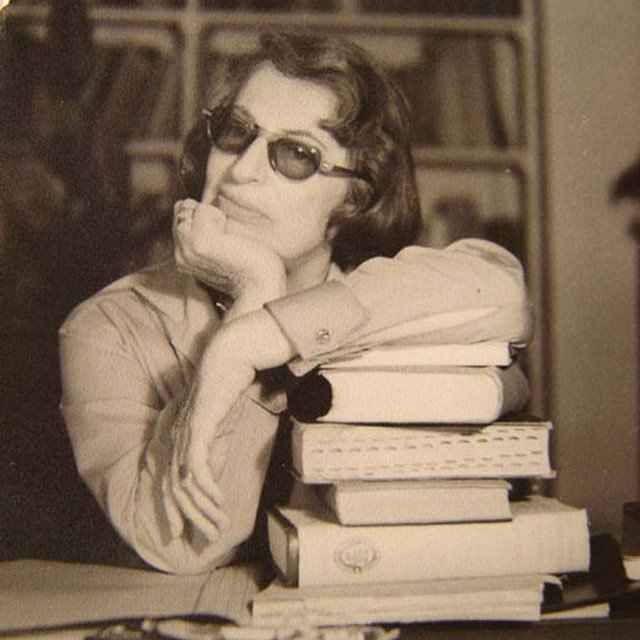


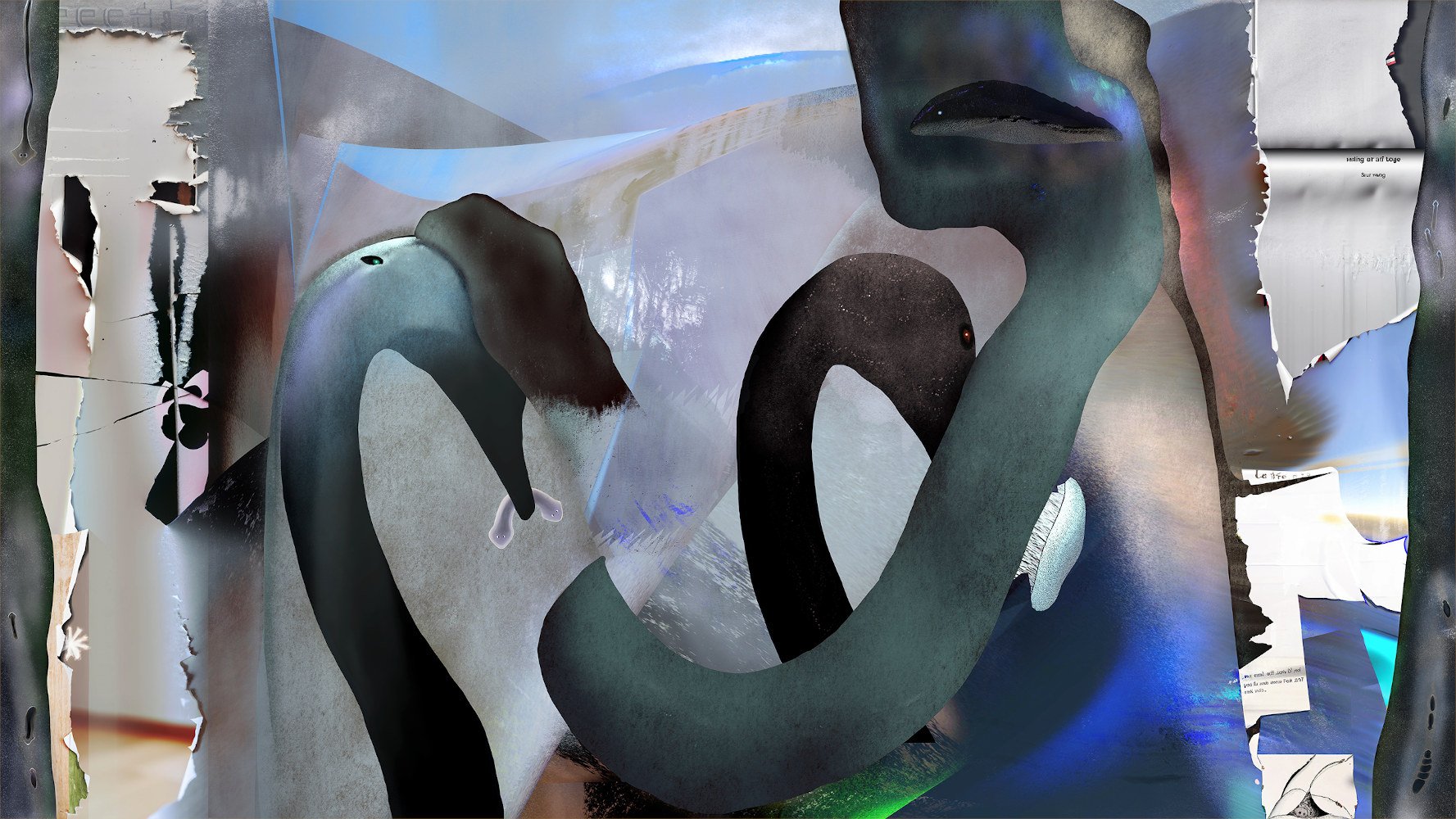



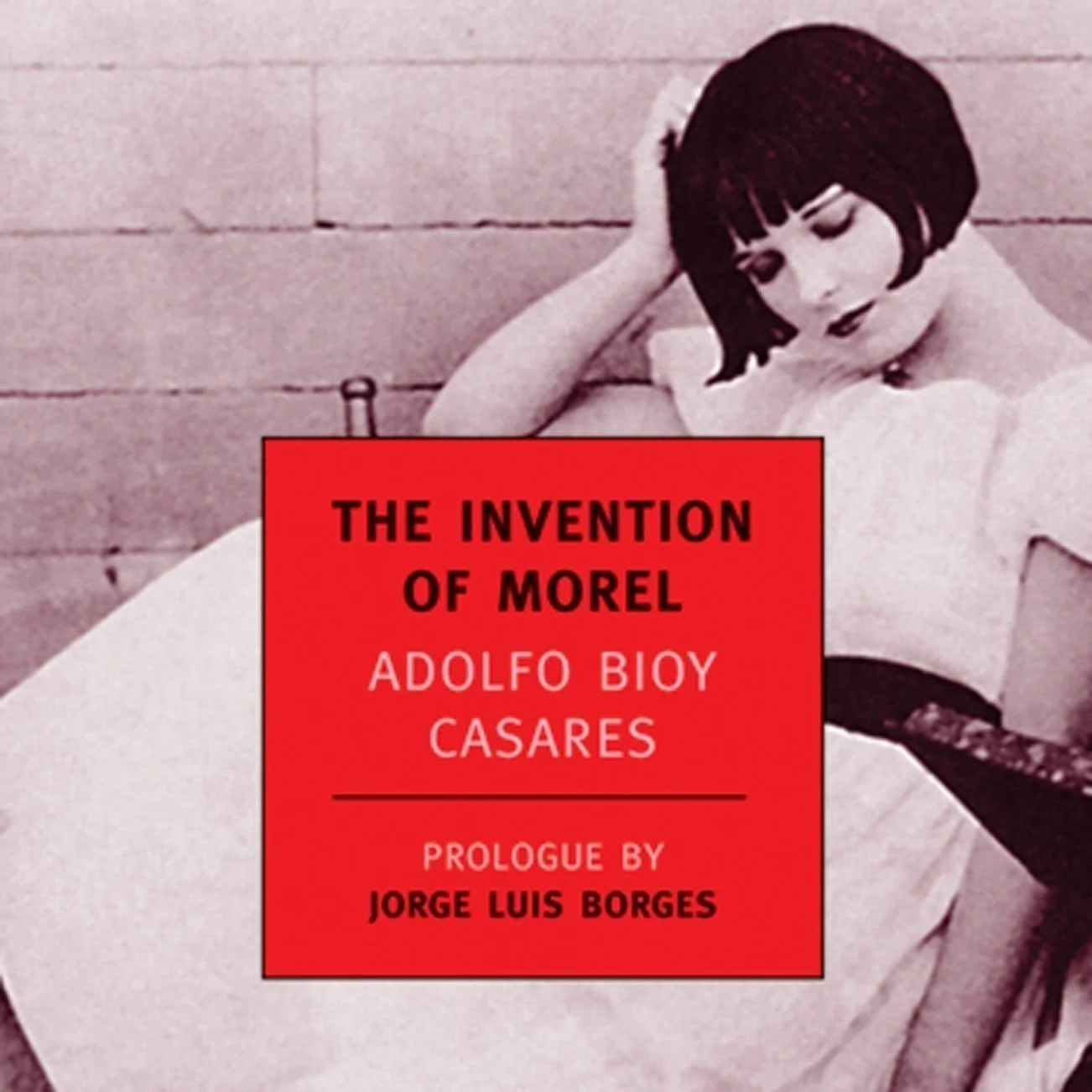
































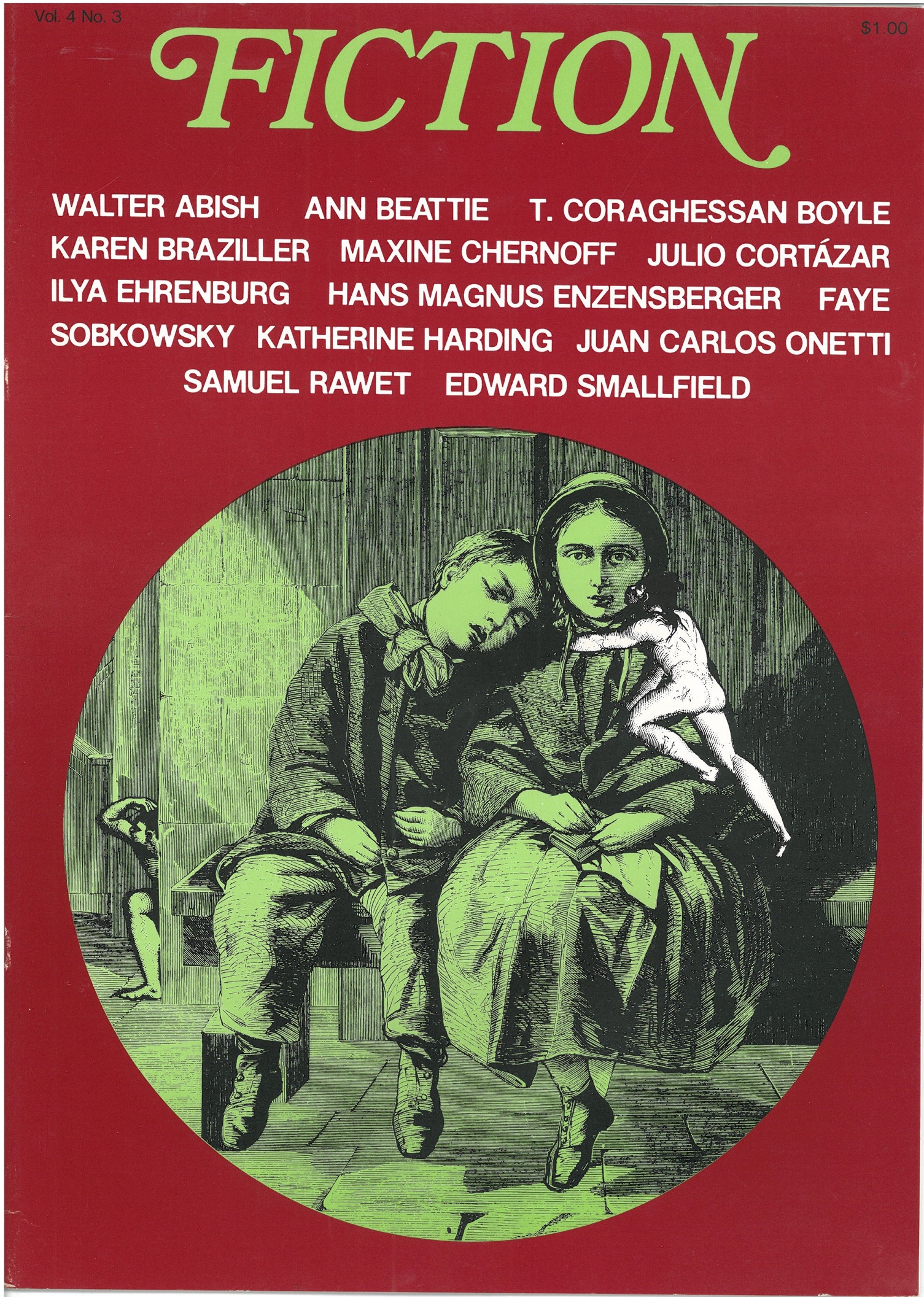


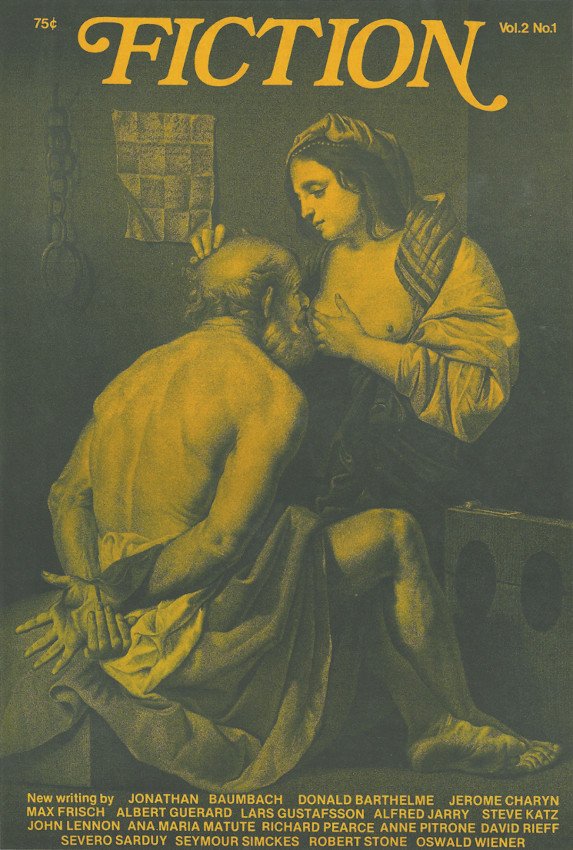
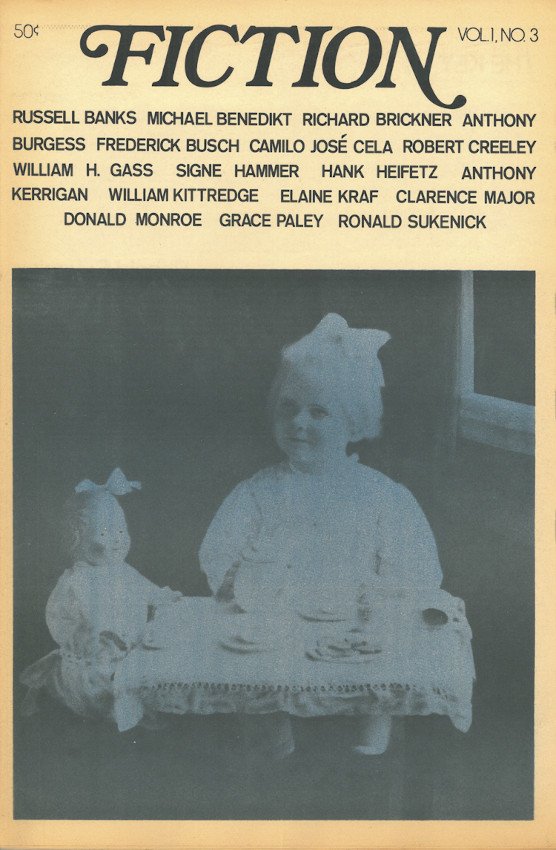
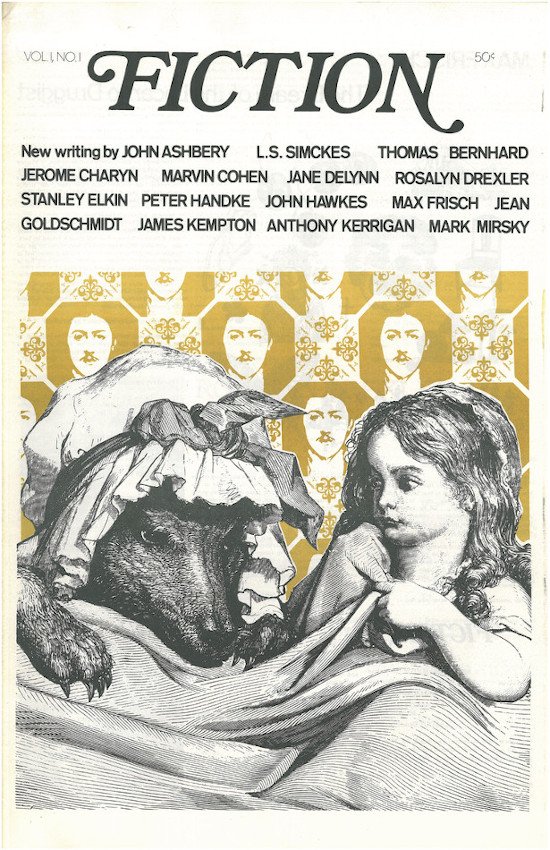
by Lia Smith
LIKE HER MOTHER, Jenny was afraid of her father. Lorraine had been terrified of Norman's sheer physical size, his low, rumbling voice. Norman had been to an all-black college in the South and took pride in his vocabulary.
Lorraine accused Norman of being a bully. During their marriage she said she'd always felt something was wrong. Norman's coolness frustrated her.